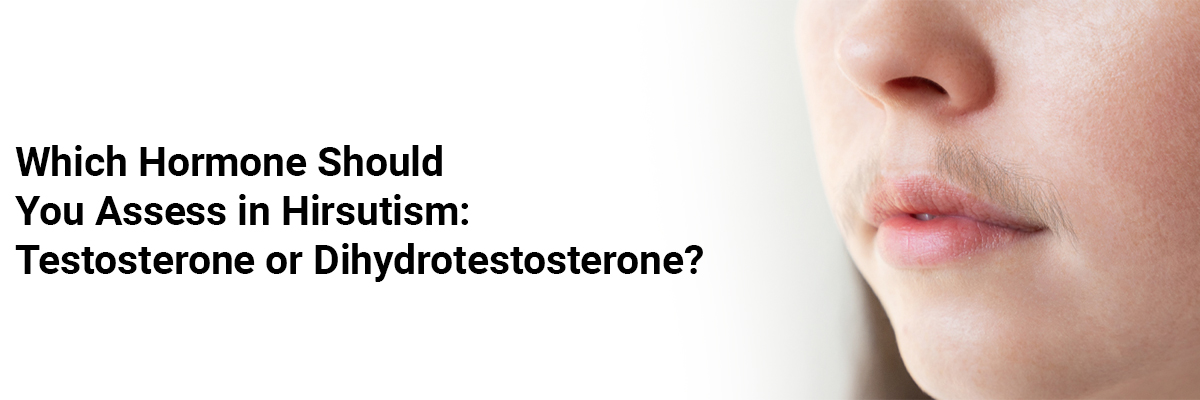
 IJCP Editorial Team
IJCP Editorial Team
Which Hormone Should You Assess in Hirsutism: Testosterone or Dihydrotestosterone?
Hirsutism, the excessive growth of hair in women, can be a distressing condition that affects their physical appearance and self-esteem. It is commonly associated with hormonal imbalances, particularly those involving androgens, the male sex hormones. While testosterone has been traditionally considered the key androgen involved in hirsutism, recent studies have shed light on the potential role of dihydrotestosterone (DHT), a more potent androgen.
Darjani A. et al. recently measured the serum levels of total testosterone, free testosterone, and DHT in 101 women with hirsutism and 101 healthy women and found significant differences in free testosterone and DHT levels between the two groups, while no significant difference in total testosterone levels. They also noticed significantly higher DHT levels in women with irregular menstrual cycles, complaints of decreased scalp hair density, and the presence of polycystic ovaries on ultrasound within the hirsutism group.
These findings suggest that while total testosterone may not be a reliable marker for hirsutism, measuring DHT levels could provide valuable insights into the condition. The elevated levels of DHT observed in women with hirsutism, especially those with additional symptoms such as menstrual irregularities and decreased scalp hair density, indicate its potential role in the development and severity of hirsutism.
The implications of this study are noteworthy. Firstly, it highlights the need to expand the scope of hormonal evaluations for hirsutism beyond total testosterone. By incorporating DHT measurements into diagnostic protocols, healthcare providers can improve the accuracy of their assessments and tailor treatment strategies accordingly. Secondly, the findings underscore the importance of considering individual patient characteristics when evaluating hirsutism. Factors such as menstrual irregularities and scalp hair density complaints may serve as valuable indicators of the significance of DHT levels in women with hirsutism.
By incorporating DHT measurement into routine evaluations, healthcare providers can enhance their diagnostic accuracy and optimize treatment strategies for this distressing condition.
Source-Darjani A, Alizadeh N, Gharaei Nejad, K. et al. Testosterone or dihydrotestosterone: what should be evaluated in hirsutism? Ir J Med Sci (2023). https://doi.org/10.1007/s11845-023-03366-x

IJCP Editorial Team
Comprising seasoned professionals and experts from the medical field, the IJCP editorial team is dedicated to delivering timely and accurate content and thriving to provide attention-grabbing information for the readers. What sets them apart are their diverse expertise, spanning academia, research, and clinical practice, and their dedication to upholding the highest standards of quality and integrity. With a wealth of experience and a commitment to excellence, the IJCP editorial team strives to provide valuable perspectives, the latest trends, and in-depth analyses across various medical domains, all in a way that keeps you interested and engaged.























Please login to comment on this article